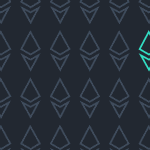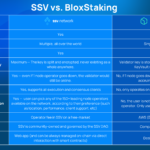The Merge
The Beacon Chain has been running alongside the proof-of-work mechanism that secures Ethereum since December 2020. The legacy PoW system relies on energy-intensive “mining,” while the newer PoS model uses validator consensus.
On the week of the 15th of September, the Beacon Chain is expected to merge with the current Ethereum Mainnet. The new proof-of-stake consensus layer (formerly Eth2) will join the existing Mainnet execution layer (formerly Eth1), combining the two into one Ethereum. It allows for future network scaling, increases security, and will reduce its energy consumption by ~99.95%, making Ethereum sustainable.
Validator Duties
In the Ethereum PoS model, the Beacon Chain sends out calls for validators to attest to and propose blocks every epoch (~6.4 minutes). When validators answer those calls and perform their duties, they earn rewards each time in small amounts of Eth.
Inclusion and Priority Fees
Ethereum users can set a priority fee for their transactions to be processed faster on the network. Currently, miners earn all priority fees when they propose a new block. Post-merge, validators will collect the inclusion and priority fees as they replace miners to secure the network.
Unlike rewards for performing duties, priority fees do not go to the validator’s balance. Instead, they are immediately transferred to an execution layer (Eth1) address of the staker’s choice upon a succesful block proposal. These funds are liquid, and available for immediate withdrawal.
I Have A Validator With Blox.
What Do I Have To Do?
To ensure your validator receives its rewards for attesting to and proposing new blocks, be sure to update to the newest version of the Blox Staking app. Follow this link to download the new bloxstaking app version and follow the in-app instructions to update fee recipient address
To receive Priority Fees, you will need to set up and configure a fee recipient address in the Blox app for each of your validators. This can be a hardware or software wallet or multi-sig contract (execution layer or Eth1 address) where the priority fees your validator earns can be sent. It is worth noting again that these fees are instantly liquid and are not locked with your Eth staking deposit or attestation/block proposal earnings.
Conclusion
The Merge is a highly anticipated event that will bring many exciting things to the Ethereum network. A sustainable Proof-of-Stake consensus mechanism based on staked Eth verifying transactions will replace energy-intensive Proof-of-Work. Validators will do the work instead of miners and earn new rewards in block proposals and priority fees. If you own a validator staked with Blox, there are a couple of things you need to do before The Merge to prepare – update your Blox Staking app and set an Eth wallet or contract address to collect the priority fees you earn. If you have questions or concerns about upgrading your Blox Staking app or require assistance, please reach out to us on Discord.


